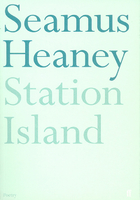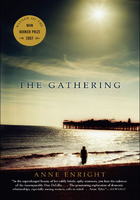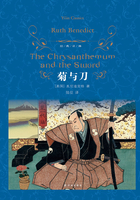The Crisis of Broken Politics
We know now that government by organized money is just as dangerous as government by organized mob.
-Franklin D. Roosevelt
Gayle McGlaughlin had no choice. When Reverend Kenneth Davis ignored her fifth warning that he had exceeded his time for speaking at the city council meeting and was out of order, the mayor of Richmond, California, had police remove Reverend Davis from the council chambers.
The mayor limited Reverend Davis's speech, and rightly so. Twenty-six people waited to speak during the opening public comment period. Each was given one minute.
Many of the speakers, including Kenneth Davis, stayed beyond public comment to share more opinions. Reverend Davis wanted to talk about a council member he had once endorsed who had subsequently been rude to him and told him to "shut up." He wanted to criticize an elected official, or as our Constitution says, "petition the Government for a redress of grievances."
The meeting dragged on until nearly midnight that night of February 12, 2012, even with the mayor enforcing the time limits. Vice Mayor Jim Rogers pointed out that lengthy public comments meant the council routinely addressed important issues after 11:00 p.m. Many people could not stay that long and lost their chance to speak.
The First Amendment to the United States Constitution tells us government may not make laws "abridging the freedom of speech" of "the people." Yet the First Amendment did not die that day in Richmond when the government limited one person's speech. That's because those limits gave other people a chance to speak-an equal chance. The people's freedom of speech is enhanced by limiting how long each person speaks.
Beyond good manners, it's just plain common sense to sit down, be quiet, and listen to others after you've said your piece. Walk into a room of first graders who are all talking at once and you realize that nobody can be heard unless everyone takes turns. Sometimes the teacher must ignore the hands of students who have spoken frequently and call on the quieter members of the class. As voters, we'll make better decisions about public matters when we hear from everyone, not just a noisy few. Two heads are better than one, so the saying goes, but only if you hear from both of them.
Similarly, because we expand speech overall by limiting each speaker, Congress limits the time a representative can talk on the floor of Congress. We strictly limit each candidate's speech during presidential debates. Even the Supreme Court strictly limits the number of pages in legal briefs as well as the amount of time lawyers have to present their case during oral arguments. It's only fair to make sure all sides of an issue get equal time, and it's more likely that Congress and the Court will make a wise decision after hearing a balanced debate.
But when it comes to money in political campaigns, the Supreme Court of the United States has turned this commonsense principle of fairness and sound decision-making on its head. Five zealots on the Court say the First Amendment forbids limiting the amount of money a billionaire like Charles Koch or Tom Steyer spends to promote his point of view. These five men in black robes say it is unconstitutional to prevent the super-rich from drowning out the voices of everyone else.
These five men are wrong.
And the rest of us must make it right.
It has become fashionable to say that American politics is "broken." Voter participation rates are plummeting, partisan bickering gridlocks Washington, and government fails to solve our biggest problems. There are dozens of "money in politics" books and reports that "connect the dots" between campaign contributions and policy outcomes. If you are unfamiliar with the ways big money unduly influences public policy, then those books are for you.
This book is for those who already know that American politics is broken and who want to repair it. If you have moved beyond cynicism to action but are unsure how to prevail when the deck is stacked against us, then this book is for you. We'll explore strategies such as voter instruction ballot measures that previous generations of Americans have used to overcome similar problems. We'll examine how we can raise our collective voice and force a stubborn, self-interested Congress to change the way it gets elected.
"If you have moved beyond cynicism to action but are unsure how to prevail when the deck is stacked against us, then this book is for you."
Who Broke Our Democracy and How Did They Get Away with It?
Our political system didn't just break. Somebody broke it. That means we can repair it. Public dialogue has not always been overwhelmed with big money, and it need not be in the future. Understanding how and why specific people broke our government is our first step toward mending it.
This book will describe infamous Supreme Court rulings such as Citizens United v. Federal Election Commission, Buckley v. Valeo, and other cases that have broken our democracy. We'll examine how judges who have never run for any office have struck down numerous campaign finance laws passed with bipartisan support over a period of forty years. These include laws enacted directly by the people themselves through ballot initiatives and passed by overwhelming majorities. We are confronting one of the most brazen periods of sustained judicial overreach in our nation's history.[4] Over the past four decades, our least accountable branch of government has shackled the other two branches and the steadfast will of the People.
The extreme imbalance of speech in our political campaigns produces a Congress and a public conversation that do not accurately represent the political viewpoints of the American people. Members of Congress are generally older, richer, and whiter than we are as a people. They listen far more to the wealthiest in our society than they do to the middle class (forgetting the poor altogether), because the wealthy determine who gets elected to Congress.
We are no longer conducting elections but rather holding auctions. The candidate for Congress who spends the most in the campaign wins nine out of ten times.[5] Although this is philosophically troubling, it would be tolerable if we could all bid in the auction. But we can't.
Only about 4 percent of Americans make a political contribution during any given election cycle, a figure that is declining over time.[6] Most donors give $25, maybe $50 dollars to a couple of candidates they really like. Fewer than one in five hundred Americans give more than $200 to any federal candidate.[7]
But the size of the donations given directly to members of Congress and presidential campaigns pale in comparison to the huge checks written to the so-called super PACs (political action committees). More than 3.7 million people gave Mitt Romney and Barack Obama $200 or less in the 2012 election-amounting to $313 million dollars. They were offset by only thirty-two fat cats-the biggest donors of all-who gave presidential super PACs a comparable amount with an average of $9.9 million each.[8]
Although there are plutocrats supporting both the Democrat and Republican parties, neither side's big donors accurately reflect the views of most Americans. For example, 40 percent of wealthy people believe the minimum wage should be high enough to lift full-time workers out of poverty, whereas 78 percent of the general public believes this.[9]
Money does not buy victory in every election but, in every election, money matters more than it should and in ways we cannot even see. Knowing that the candidate who spends the most money wins almost every time, many citizens who would make excellent legislators don't run because they can't-or won't-do what it takes to raise the money.
When I was considering whether to run for secretary of state in California, I spoke with several bigwigs in my political party who laid out very clearly how much money other candidates would raise and what I'd need to raise to be considered viable to run against them. It was enough to send most sensible people running for the hills, but I decided to give it a try anyway.
I later interviewed with dozens of civic organizations to seek their endorsement, and their most pressing question was how much money had I raised. Sure, they were interested in my policy positions, but they knew the way things work. Organizations that endorsed a candidate who had raised less money than another would likely be on the wrong side of the winner. Not only would that give them less access and influence with the eventual officeholder, but backing a loser would make them look ineffective to their members.
Winning the "wealth primary"[10] by raising the most money allows a candidate to speak more loudly and more frequently than her opponents. It also creates an aura of inevitability about the race, which the news media compounds and magnifies by only covering candidates who have raised big money and further diminishing the opportunity for other candidates to be heard.
Candidates who tackle issues contrary to wealthy interests get moved to the sidelines and those issues vanish from public discourse. Tim Donnelly discovered this the hard way when he ran for governor of California in 2014. A Tea Party conservative, Donnelly ran against fellow Republican Neel Kashkari. Kashkari was (and still is) a Wall Street hero, having engineered the federal bailout of the banks that crashed our economy in 2008.
The campaign was a battle for the future of the Republican Party in California. Wealthy businessmen worried that Donnelly's conservative views on abortion, guns, and gay marriage would not win over a majority of Californians.
Donnelly outraised Kashkari by a ratio of ten to one among donors who gave less than $100.[11] Although disclosure records do not tell us the total number of donors to either campaign, there is no doubt that significantly more people donated to Donnelly than to Kashkari-it's just that their checks were a lot smaller.
Kashkari raised more than $900,000 from wealthy donors in the first two weeks of his campaign-more than double what Donnelly had raised in the entire year before. Kashkari dumped another $2 million of his own money into his primary campaign-money he'd received in compensation as a Goldman Sachs executive.
Donnelly started at 17 percent in the polls compared to Kashkari's 2 percent.[12] Just weeks before the election, Donnelly still had more support, with 15 percent compared to Kashkari's 10 percent.[13] But, after outspending Donnelly by more than four to one, Kashkari came in at 19.4 percent of the vote to Donnelly's 14.8 percent to win the primary. Neither candidate had a prayer of defeating incumbent governor Jerry Brown in the general election, but big money in the primary meant the November campaign ended up being about Kashkari's attacks on high-speed rail and teacher tenure instead of the issues of tax cuts, gun rights, and social concerns that Donnelly would have raised. In other words, candidates debated issues the wealthy elite cared about, but not the concerns of conservative Californians who had no voice in the general election.
Ask yourself, would our public discourse have been different if both Donnelly and Kashkari spent the same amount of money, instead of one candidate having what amounted to four times the speech of the other? Or, suppose fundraising truly reflected popular support for the candidate and Donnelly had outspent Kashkari by the ten-to-one ratio that Donnelly outraised him among small donors. What then would have happened? We will never know for sure, but we can be certain that big money changed the dynamics of the gubernatorial race in ways that distorted the marketplace of ideas.
More Bad News: A Judicial Coup
As the 2014 California gubernatorial race attests, big money not only influences who wins elections; it allows a tiny and unrepresentative group of people to determine who runs in the first place and what issues we discuss during campaigns.
This is bad news.
It is, in fact, very bad news because the capture of our legislative branch by a wealthy elite is compounded by the capture of our judicial branch by the same narrow, wealth-worshipping clan. This judicial coup short-circuits the checks and balances that the Framers of our Constitution put in place to guard against the evils of what they called "faction" (and we call special interests) that they quite correctly predicted would arise in a democratic republic.
Judges are supposed to protect the people from overreaching legislators who deprive us of liberty, whether out of self-interest or due to momentary swings in public passion. Our Founders feared mob rule, where majorities of voters get caught up in a temporary rage and trample on the rights of minorities. Although large numbers of people are more likely than small numbers of people to accumulate the wisdom of the crowd, even democratic majorities can (and do) make mistakes.
But instead of protecting our republic from temporary mob rule, five of the nine members of our Supreme Court are protecting a powerful but miniscule elite from the People themselves. Instead of mob rule, we have "millionaire rule" by a gang of fat cats who extort our politicians to serve their interests instead of the public at large. Those politicians then choose or approve the judges who sit on the Supreme Court, which works about as well as having the Mafia appoint our police chiefs.
Paid Speech Isn't Free
The same billionaires who have captured our courts have also created a network of think tanks, academics, public relations firms, lawyers, and political consultants to manufacture a plausible reason for us to submit to their rule. They have twisted and perverted the concept of freedom of speech, so cherished by our nation, by claiming it is impossible to limit spending on political campaigns without also censoring the New York Times, or jailing comedians who criticize our government through satires like Saturday Night Live. I'm not making this up: that's really what Senator Ted Cruz said on the floor of the United States Senate while defending the "rights" of billionaires to buy elections.
The oligarchs try to confuse us by pointing out that spending money can disseminate speech. That's true. But a lot depends on who's paying-a distinction that has been obscured in our campaign finance debate. Exploring this distinction, as we'll do in chapter 2, resolves the so-called "unintended consequences" that opponents of campaign finance reform invent.
Sometimes a speaker pays to get other people to listen to him, as when you purchase a loudspeaker so more people can hear you. Sometimes the listener pays to hear the speech, such as when you buy a ticket to see a political movie.
Usually there is a middleman who is paid by either the speaker or the listener to disseminate speech. Lobbyists are middlemen that are paid by CEOs to promote a corporation's interests to legislators. Book publishers are paid by readers to distribute the speech of authors. The book you are now reading contains political speech, but I'm not paying to make you read it-you paid to buy it, or a library paid to offer it to you.
Perhaps the most important middleman is the news media-the press. Subscribers pay newspapers to provide articles and columns that they actively want to read. Advertisers pay newspapers to include speech that readers don't particularly want to read but will tolerate to subsidize the articles they do want. Consumers pay cable TV providers for programs like Fox News and MSNBC, but advertisers pay even more so they can speak to the captive audience that the programs attract.
When politicians say campaign spending limits violate the First Amendment, their scare tactics rely on a simple trick: they ignore the distinction of who's paying. As the Nobel Prize-winning economist Milton Friedman pointed out, there's no such thing as a free lunch. Likewise, there is no such thing as free speech when someone else is paying for you to hear it.
If you or I are purchasing speech, we are limited only by our wallet and the number of newspapers, magazines, or books available at the local bookstore or, these days, the various sources of information available online. Media consolidation and threats to the Internet's content neutrality could artificially restrict our choices, so we must protect our rights to freely choose the speech we want to hear via these forums.
In a world of Google Books and Project Gutenberg, which is making every book in the public domain available on the Internet for free,[14] we have more opportunities to seek out speech than ever before. A lot of online information may be free once the reader pays an Internet service provider, but that individual is still seeking it out, not having it foisted on her by advertisers. There is no need for legal limits when the listener is buying-to the contrary, the law needs to expand and protect our choices.
But when the speaker is buying speech and pushing it onto a captive audience, we run into real-world limitations on a listener's time. Legislators only have a certain amount of time to listen to constituents. Realistically, they might grant fewer than a dozen meetings a day. When legislators meet with paid lobbyists representing campaign donors, they have less time to hear constituents. Money talks while ordinary citizens are silenced.
Similarly, voters have limited time to consider all the candidates and measures on their ballot. The more time they spend watching ads and reading mailers from big money candidates, the less time they have to consider the messages and positions of other candidates. Low-budget campaigns are drowned out by big money.
I attended the Richmond City Council meeting described at the opening of this chapter to discuss a topic that ultimately wasn't even considered because the rest of the meeting took too long. My speech was, quite literally, pushed off the agenda.[15] Even with the council rules limiting the duration of each speaker, there were so many people who wanted to speak that my voice that night was squelched by the speech of others. Whether it is city councilors listening to public comment, legislators debating on the floors of Congress, or voters considering information about candidates, we all have limited time to listen to various and competing viewpoints. If one person or group pays money to foist its viewpoint on the listener, it crowds out other viewpoints. When we're dealing with a captive audience, we can only expand free speech by limiting paid speech.
Think about it: Should I have been allowed to pay for the privilege of speaking that night? Should others have been able to buy more than a minute's time to talk? Would anyone consider that "free" speech?
To eliminate the confusion being generated by the outright lies of the billionaires and their lackeys in our courts and legislatures, we must draw a clear distinction between paid speech, where the speaker is paying to get others to listen, and free speech, which is equally available to everyone. We need to distinguish the free press, where the listener seeks out information, from paid advertisements, where, in a sense, information seeks out listeners. This is a simple line to draw, but much of our dialogue around campaign finance rules for the past forty years has obscured it. We have instead become mired in complexities of considering which actions are corrupting according to the so-called experts and which ones aren't. Chapter 2 will help sort this out.
Overcoming the Bad News
We face not only very bad news, but a complex problem that thwarts the tools of self-government our Founders created to solve problems just like this. We face opponents that are taking advantage of the problem's complexity and trying to buffalo us into believing that it is impossible to have a democracy unless we put our elections up for sale.
The news is not just bad, it's become catastrophic-and, paradoxically, therein lies our salvation.
Nobody wants to hear bad news. Our lives are difficult enough between taking care of sick children, holding down jobs, and taking out the garbage to spend too much time listening to any news at all. But we have almost no time whatsoever for depressing news, especially news we feel we cannot change. There is no point worrying about things we have no control over, so we spend what little free time we have consuming information that's more fun-such as watching a football game or a "reality" TV show. We push bad news out of our minds, shrugging it off as an annoyance we have to live with.
Unlike bad news, catastrophes rouse us to action. We find ways to help, come hell or high water. After Hurricane Katrina hit New Orleans, Americans gave the Red Cross more than $2 billion in relief funds[16]-almost as much to that one organization as the $2.5 billion individuals gave to all federal and state candidates in the year before.[17] The Red Cross mobilized more than seventy-four thousand volunteers in the first two weeks after the storm.
American resolve is also particularly strong in crises that threaten our republic. We sat on the sidelines during the first years of World War II, ignoring the alarming news of Adolf Hitler's invasion of Europe and his blatant disregard for human rights. But after the Japanese bombing of Pearl Harbor turned the situation into a catastrophe, the United States completely disrupted its economy and the personal lives of every citizen in order to fight external enemies. If we could do that, surely we can defeat our current internal enemies subverting our democracy.
We've solved bigger problems within our republic before, making it more participatory, more just, and wiser. When our nation was founded, only white men who owned property could vote. Expanding the electorate to include non-landowners was against the self-interest of the incumbent politicians and current voters of the time. And yet we did it.
It took a constitutional amendment to include women in our national electorate. Eighteen-year-olds were considered mature enough to go to war but not old enough to vote prior to the passage of the Twenty-sixth Amendment in 1971.
The process to amend the US Constitution is difficult, yet when our resolve is strong, we have made it happen. Seven of our twenty-seven constitutional amendments overturned previous rulings by the Supreme Court. This is how our system of checks and balances works.
Cynics say it would be too difficult to pass a constitutional amendment to overturn the Supreme Court's ruling in Citizens United, but the skeptics underestimate Americans and don't appreciate our history. Women in the early twentieth century didn't concede that an amendment was too difficult. They fought to make it happen. Like a sleeping lion finally roused to action by vultures that have stolen her prey one too many times, Americans can make bold, swift changes to take back our rightful heritage of self-government once we fully awaken to the threat.
Naysayers forget that honorable people have risen above their partisan interests when the fate of our republic hung in the balance. It was Republican leaders in Congress, such as Howard Baker, who led the congressional investigation of the Watergate scandal. It was a southern Democrat, Lyndon Johnson, who signed the Civil Rights Act of 1964 while saying "we've just delivered the south to the Republican Party for a long time to come."[18]
By far, the most difficult crisis in our nation's history was slavery, which denied millions of African Americans the inalienable rights of liberty, the pursuit of happiness, and sometimes even life-rights so clearly enshrined for all people in our Declaration of Independence. The economic elite profiting from slavery was larger and more powerful than the billionaires today who have captured our legislatures and courts. Their power was reflected in the Supreme Court, which bolstered the institution of slavery in the Dred Scott decision (a powerful reminder that Citizens United was not our highest court's first mistake). Yet, government of, by, and for the people beat the slave owners then, and we will beat the billionaires now.
The Worse Things Get, the Bigger We Must Think
Americans have never solved our biggest problems by focusing on the small ones. Abolitionists did not end slavery by debating only whether slaves should be well fed, whether owners should keep slave families together, or whether slavery should expand to the territories. Those incremental issues were important, and concrete steps were taken to improve hundreds of thousands of lives.[19] But they were all done within the greater context that slavery itself was immoral and needed to be abolished-even at times when that seemed impossible.
There is no conflict between taking incremental steps to improve our elections and demanding we fix the fundamental damage that judicial ideologues have done to our Constitution. We can push for greater disclosure and public financing of campaigns, while simultaneously pushing for a constitutional amendment to overturn Citizens United.
What to Do-Step-by-Step Instructions
This book details how Americans have overcome incumbent self-interest and judicial activism before by passing amendments to our Constitution. There are particular lessons from the Seventeenth Amendment for direct election of US senators. We can also gain wisdom, and resolve, from the successful struggle to pass the Nineteenth Amendment for women's suffrage.
We will rediscover a process whereby voters gave specific marching orders, known as "voter instructions," to their elected representatives. Many of the delegates who met in Philadelphia to draft our Constitution did so under clear instructions from their constituents. Notably, those Framers specifically promised the people that they could use instructions to fix problems with the Constitution or the government it created through the amendment process. We can do the same today.
Voters in Montana, Colorado, and dozens of cities and towns have revived voter instructions and told their elected officials in no uncertain terms that they want a constitutional amendment to establish that unlimited campaign spending is not free speech. Unbelievably, the California Supreme Court blocked people from similarly speaking out by removing an instruction measure, Proposition 49, from the 2014 ballot.
When the court heard full arguments about the case on October 5, 2015, most justices appeared as though they were prepared to reverse their earlier rush to judgement and restore Proposition 49 to the ballot. A ruling is likely by January 2016, but as this book goes to print the court had not issued a final decision.
Working in parallel with the amendment process, we must also explore other avenues for overturning wrongheaded Supreme Court rulings. President Franklin D. Roosevelt faced a decade of disastrous rulings by the Supreme Court that struck down most of the New Deal. The court stood as an obstacle to rebuilding the American economy following the Great Depression. Although there were amendments introduced in Congress to overturn the rulings, Roosevelt found another way to elevate a constitutional crisis that roused a national conversation and forced the Court to reverse itself.
Throughout our history, there have been other examples, for good and for ill, of the executive and legislative branches pushing back on judicial interpretations and letting "We the People" serve as the final arbiters of our collective fate. It is, after all, "We the People" who adopted the Constitution and who are its sole source of legitimacy. We are not the ones who broke our democracy, but we are the ones who must fix it.
The hard truth is that it might take fifty to seventy years to reverse the Supreme Court's logic that unlimited campaign spending is free speech. The good news, which chapter 8 will detail, is that we are already forty years into that struggle and have made more progress than most people realize.
Whether by constitutional amendment or constitutional crisis, we have overcome seemingly "impossible" challenges to our republic before by conducting a national conversation of extraordinary proportion. We must set aside our differences on other matters and prioritize this crisis instead of sweating the small stuff. We do not have the time and energy to do this for every piece of bad news. But when we have confronted catastrophes in the past, Americans have time and again risen to the occasion.
The time has come for us to do so again.
Let's get to work.
What you can do: Join a group
You can't do this alone. See Appendix I for more than a dozen organizations that are working to overturn Citizens United. Join one. Better yet, join several.















